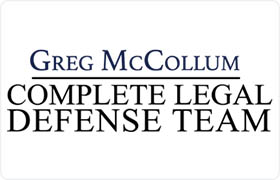 Nichols RICO Act Lawyers, South Carolina
Nichols RICO Act Lawyers, South Carolina
Sponsored Law Firm
-
 x
x

Click For More Info:
-
Greg McCollum Complete Legal Defense Team
1012 38th Avenue North Suite 202 Myrtle Beach, SC 29577» view mapCriminal Defence Law Complete Legal Defense Team
Our goal at the Complete Legal Defense Team is to examine the facts and circumstances completely and help our clients.
800-634-0690
Not enough matches for Nichols RICO Act lawyer.
Below are all Nichols Criminal lawyers.
Lawyers
1-4 of 4 matches
Power of Attorney, Income Tax, Wrongful Termination, DUI-DWI
Criminal, Divorce & Family Law, Employment, Government
Criminal, Child Custody, Immigration, Power of Attorney
Lawsuit & Dispute, Estate, Criminal, Accident & Injury



 Greg McCollum Myrtle Beach, SC
Greg McCollum Myrtle Beach, SC AboutGreg McCollum Complete Legal Defense Team
AboutGreg McCollum Complete Legal Defense Team Practice AreasExpertise
Practice AreasExpertise